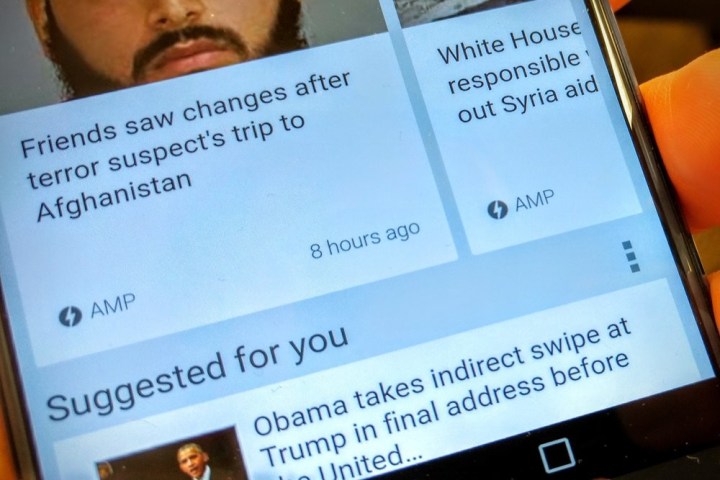
The battle is the latest between publishers and social media platforms. In its letter, the agencies stated that while companies internet giants like Facebook, Google, and Snapchat reap 60-70 percent of advertising revenues on its platforms, while neither have a newsroom.
The battle between publishers and the internet giants has grown more heated over the last few years as more users move away from computers and use mobile devices to read the news. According to a Pew report, the number of people who prefer to get their news on mobile devices has grown to 65 percent in 2017.
For the past several years, companies like Facebook and Google have created products to reduce load time for content on mobile devices. In 2015, Facebook released Instant Articles a feature that allows publishers to host mobile content on its servers. In 2016, Google followed suit and released a feature called Accelerated Mobile Pages (AMP) that allows users to access news articles with nearly zero load time.
While both AMP and Instant Articles can improve mobile user experiences, it comes at a huge cost for publishers. These services remove links and recommended content from the publisher and minimize ad revenue by reducing the number of ads and requiring publishers give a cut of the revenue to the internet company. The result for publishers more visibility on mobile platforms but with less revenue to fund future reporting.
The rollout for Facebook’s Instant Articles has been particularly rough. In April, a number of elite publishers including The New York Times, The Guardian, and Hearst opted out of Instant Articles after finding their own mobile-optimized stories not only resulted in higher revenues but higher subscription rates as well. In a rare concession, Facebook worked with publishers to add changes to Instant Articles, devoting more room for ad space, providing paywalls, and adding subscription buttons.
But European publishers believe these attempts only address a small portion of their complaints. They believe the companies that use their reporting should be required to pay for the work and are asking the European Union to give them “related rights” copyright to their work. While publishers believe copyright protection is essential for free and reliable news gathering to continue, European Parliament members worry that such action could be a threat to free internet.
